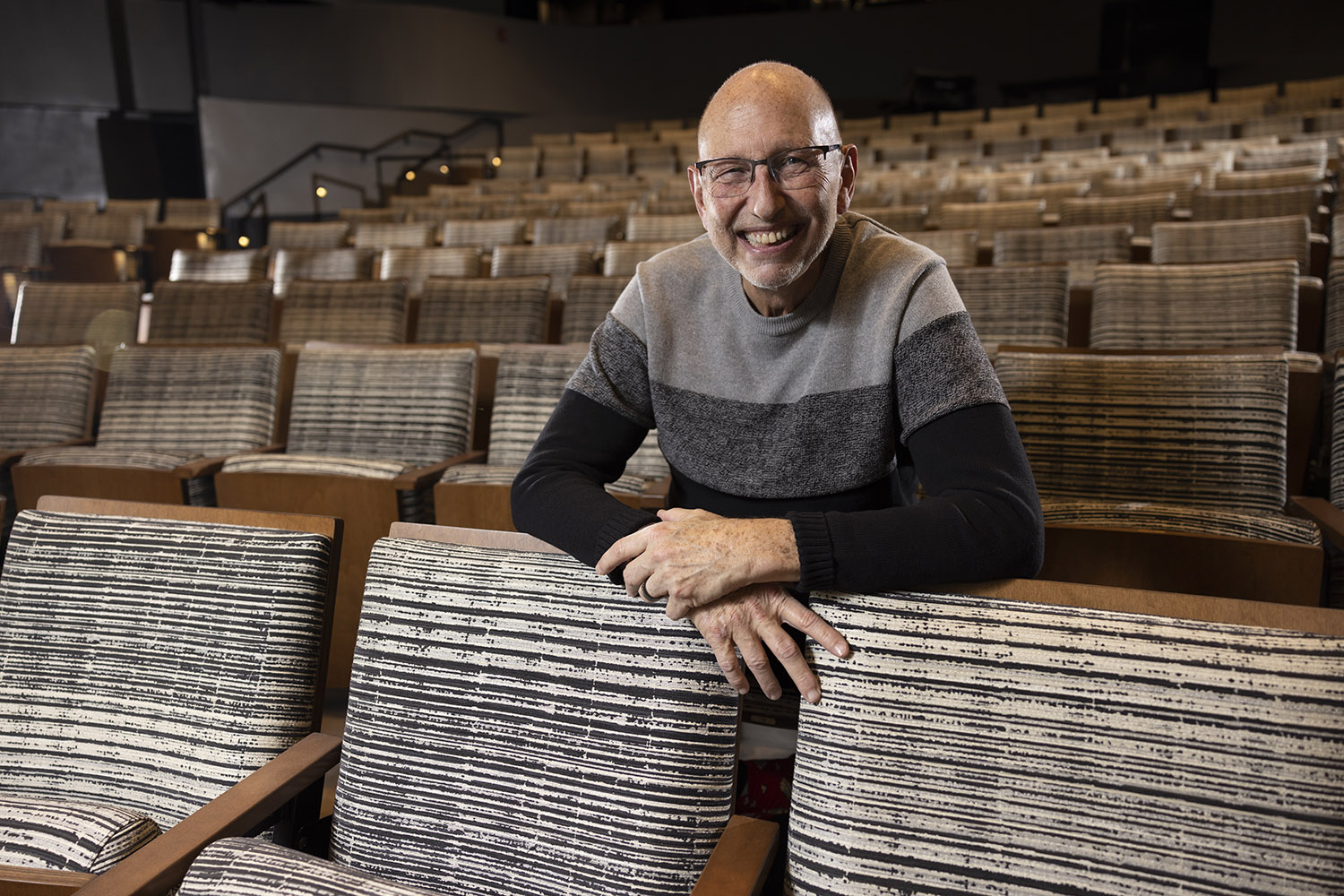
Like so many of my colleagues, I can’t believe the spring semester and my twelfth year directing the School of Theatre & Dance is coming to an end. It’s been a great year, one which culminated in a visit from two members of the National Association for Schools of Theatre (NAST) to assess our growth and comment upon any challenges they witnessed during their days with us. We will not have their report in hand until June, but we’re excited to hear their take on our strengths and opportunities for growth.
Having just returned from the annual NAST Conference, where I led panels, trained new administrators, and serve as Chair of Ethics, I’m even more grateful for the opportunities that Texas Tech offers its programs in the arts. So many departments of theatre across the nation have either lost funding or shut down completely, that I feel incredibly grateful to be at a university that understands and supports financially theatre and dance. I often share with our faculty and staff members this sentiment, reminding them that our new facility is emblematic of this support, as was the hiring of Dean Camacho who understands implicitly the needs of each School in the College.
Our Dean works very long days to help us determine the best means to educate our students while protecting their well-being, and find new, creative means to perpetuate the arts not only in our community, but also globally. Our new College vision statement truly reflects who we are, and within a few months, we will also have a new strategic plan, guided by members of our College.
One prominent critic shared with me recently his concerns about performance post-pandemic. If you are like me, during the pandemic when we were encouraged to avoid crowds, we learned that we could save money by watching movies at home and cooking for ourselves. Theatre and dance can be seen, according to this particular critic, as a luxury item, one often too expensive, and dare he says, even seemingly unnecessary. He laments that theatre hesitated before returning full force from the pandemic, and while he understands the importance of health and safety, he wishes the arts had shared with sports the urgency to return to live events.
While I’m not sure I fully share his sentiments, I do recognize that Broadway theatres and those in the West End are extraordinarily expensive, often ignoring the need to attract potential younger audiences based on cost alone. Educational theatre productions are suffering as well. Our season subscriptions are down, as are those at most university theatres, and at NAST, I discovered other colleges have reduced the number of productions and find even if they charge less for a play than a movie, audiences are scarce.
How do we, then, persuade audiences to share our belief that the arts are not only important, but necessary? Our School has a few ideas, which we will implement in our next season.
First, for a limited time, we are offering four season subscriptions for the price of two, which addresses the affordability issue. Second, we chose a season that is guaranteed to entertain as well create what we call in television, water-cooler conversation. For example, even our musical concluding this season, Xanadu, is just plain fun. I saw a matinee in New York with the original cast, and I must confess, after it ended—if I had the time—I would have paid to see it again that evening.
We open next season with Eric John Meyer’s The Antelope Party, a dark comedy about a group of people persecuted for a role playing ritual featuring their affection for “My Little Pony”; Bright Star, an uplifting and folksy musical by Steve Martin (yes, that Steve Martin from Murders in the Building) and singer Edie Brickell; an original, devised piece centering metaphorically around the idea of those things that haunt us, The Ghost Project; and ending with a world premiere musical by West Texas favorites Jaston Williams and Joe Sears (their first collaboration since the Greater Tuna series), The Nerve of Minerva. And, of course, our season features Fall Dance Festival and DanceTech, cutting edge choreography which always reflects contemporary issues in humorous, thought-provoking, and provocative ways.
Third, we are in the midst of creating and/or strengthening existing affinity groups, such as Friends of Theatre & Dance/Producer’s Circle, to help us spread the word and to provide backstage access/conversations with the cast/crew/designers, sharing the magic of production more transparently. And fourth, our Theatre & Dance in the Community course asks all students to work actively for a semester in Lubbock, sharing their love of the arts with many who have not had the opportunity to explore and understand theatre and dance.
Finally, we are revising our curriculum to best address the professional work force, giving them the skill set necessary to succeed by embracing contemporary practices.
So much of the success of these endeavors depends on you, our audiences, and our supporters, without whom we have little reason to exist. Performance is by its very nature a collaborative art, with audiences serving as our primary collaborators. So as this semester comes to a close, our School thanks those who have witnessed our art and we encourage each of you to share your love of theatre and dance with someone you know who may not be fortunate enough to have visited our beautiful new facility.
In many ways, those reading our newsletter are all friends of the arts (preaching to the converted, as they say), so if you share that love with someone new, we can work to reverse damages imposed by the pandemic. Word of mouth is the best means of increasing audience attendance.
We can’t wait to see you for our 2024-25 season!
